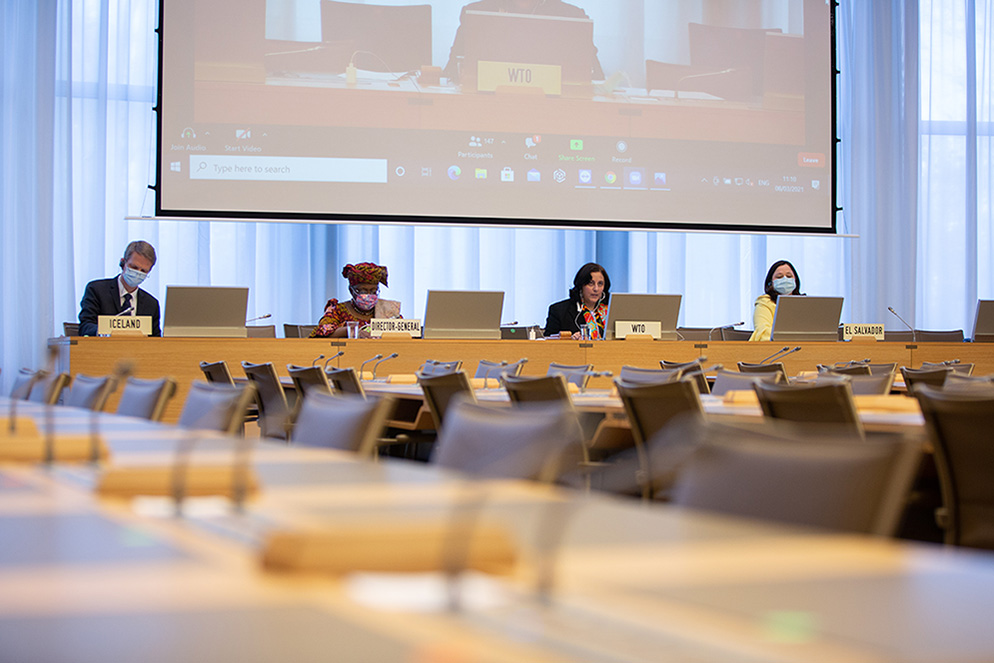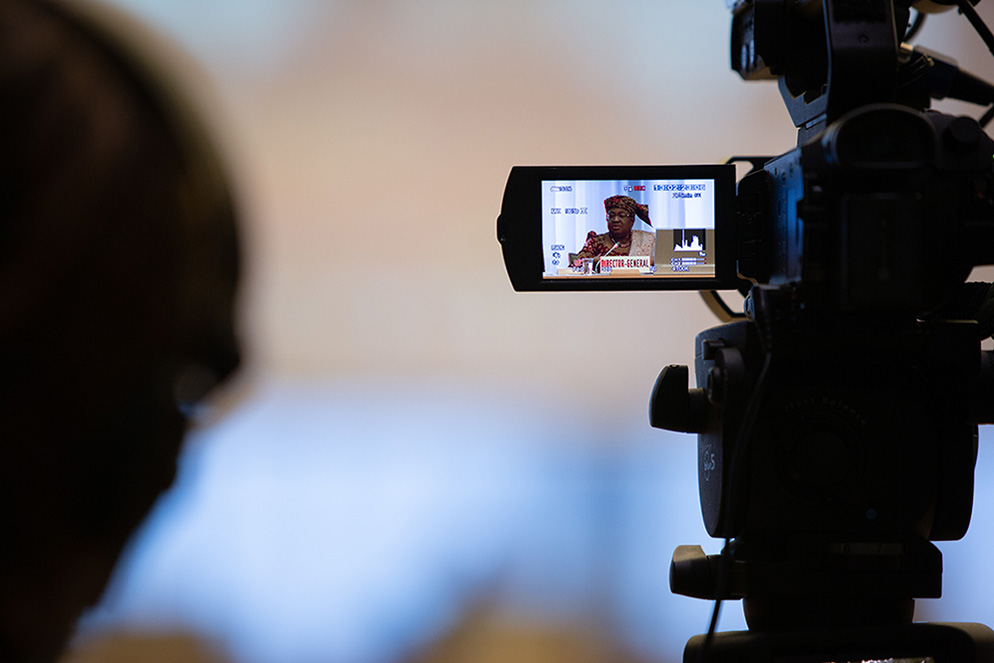More
At the WTO's virtual event, “Women in leadership: Achieving an equal future in a COVID-19 world,” speakers underlined that WTO members must act swiftly to address the disproportionate impact of the COVID-19 crisis on women, as they have been most vulnerable to trade and economic disruptions during the pandemic. Targeted policies are needed to ensure no one is left behind, the speakers said.
“We cannot expect to make good policy for all members of society if half of the population is not properly and equally represented at the table. Gender equality is a fundamental human rights issue and also an economic empowerment issue. We should all work harder in our respective roles to achieve gender equality,” DG Okonjo-Iweala said. WTO members must work to keep trade open, ensure access to vaccines and other medical products, address the digital divide between men and women, and extend targeted support measures for women workers and exporters, she said. Read her full speech here.
Panellists at the event likewise underlined how women have been hard-hit by the COVID-19 crisis and discussed the role that trade and the WTO should play in ensuring that gender inequality is addressed in strategies to recover from the pandemic.
“The pandemic has hit women the hardest in the sectors that have been hit the worst, and especially the informal sector, where women are employed,” Ambassador Harald Aspelund of Iceland said. “The challenge remains about mainstreaming gender into the full spectrum of the WTO's work so that it becomes second nature of the organization,” he said, noting the ongoing efforts of the Informal Working Group on Trade and Gender. The group was established in September 2020 as the next phase of an initiative launched at the 11th Ministerial Conference in 2017 in Buenos Aires, where the “Joint Declaration on Trade and Women's Economic Empowerment” was signed. Currently 127 members and observers support the Declaration.
Ambassador Athaliah Lesiba Molokomme of Botswana stressed the importance of addressing gender inequality at all levels so that a wide range of efforts can help women benefit more meaningfully from trade. “Clearly, we need to have comprehensive provisions or mechanisms and this has to happen at the domestic, regional and global levels so that we address the peculiar challenges of women entrepreneurs. We're trying to empower women to trade,” she said.
Ambassador Ana Patricia Benedetti Zelaya of El Salvador elaborated further on the future work of the Informal Working Group. Agreement-specific surveys could be carried out to identify obstacles women face in participating in trade and WTO members must be encouraged further to report on their trade and gender regimes in their respective Trade Policy Reviews. “We must not forget that the face of trade in many countries is that of women. It is here where the WTO and we as members have an enormous responsibility and at the same time an opportunity to help shape the world after the pandemic.”
The three ambassadors are co-chairs of the Informal Working Group.
For Shinta Widjaja Kamdani, executive board member of the International Chamber of Commerce, greater public-private cooperation is needed to usher in an inclusive recovery from the COVID-19 crisis, particularly with regards to access to vaccines and trade finance.
“The WTO, as the leading multilateral institution responsible for the international trading system, clearly has a role to play,” she said.
Share
Share
Problems viewing this page? If so, please contact [email protected] giving details of the operating system and web browser you are using.

